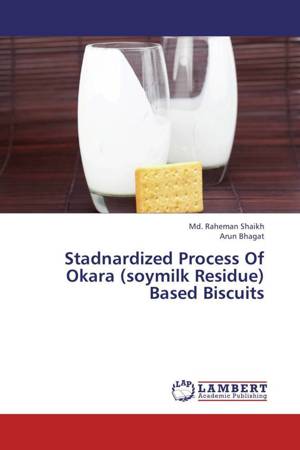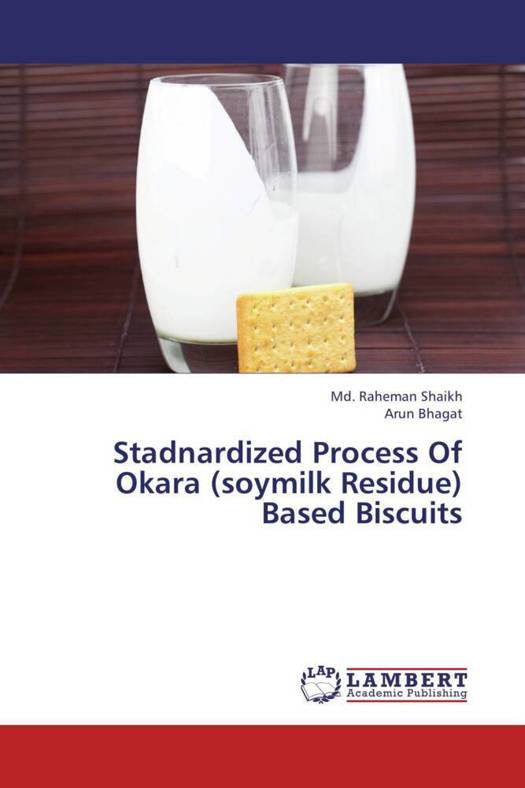
- Afhalen na 1 uur in een winkel met voorraad
- Gratis thuislevering in België vanaf € 30
- Ruim aanbod met 7 miljoen producten
- Afhalen na 1 uur in een winkel met voorraad
- Gratis thuislevering in België vanaf € 30
- Ruim aanbod met 7 miljoen producten
Zoeken
Stadnardized Process Of Okara (soymilk Residue) Based Biscuits
Md. Raheman Shaikh, Arun Bhagat
Paperback | Engels
€ 46,95
+ 93 punten
Omschrijving
Okara (residue of soymilk) is rich in proteins, fibers and lipids. It also contains isoflavones which are thought to have a positive effect on health. Sweet Biscuits with partial replacement of wheat flour by okara flour at 10%, 20%, 30% and 40% incorporation level were produced. The proximate analysis indicated that protein, fat and ash content of biscuits increased whereas carbohydrate and moisture content of biscuits decreased with increasing the incorporation level of okara flour. Protein content of biscuit samples increased from 3% to 21%. The increase in protein content indicates that supplementation of okara flour with wheat flour would greatly improve the protein nutritional quality of biscuits. Texture profile analysis showed that the hardness value of biscuit samples decreased from 36.807 N to 24.17 N with increasing the incorporation level of okara flour. Sensory evaluation revealed that 30 percent okara flour incorporation with wheat flour was found to be the most acceptable combination in biscuit making with respect to nutritional, textural and organoleptic qualities of biscuits.
Specificaties
Betrokkenen
- Auteur(s):
- Uitgeverij:
Inhoud
- Aantal bladzijden:
- 80
- Taal:
- Engels
Eigenschappen
- Productcode (EAN):
- 9783659404757
- Verschijningsdatum:
- 2/06/2013
- Uitvoering:
- Paperback
- Afmetingen:
- 150 mm x 5 mm
- Gewicht:
- 124 g

Alleen bij Standaard Boekhandel
+ 93 punten op je klantenkaart van Standaard Boekhandel
Beoordelingen
We publiceren alleen reviews die voldoen aan de voorwaarden voor reviews. Bekijk onze voorwaarden voor reviews.








